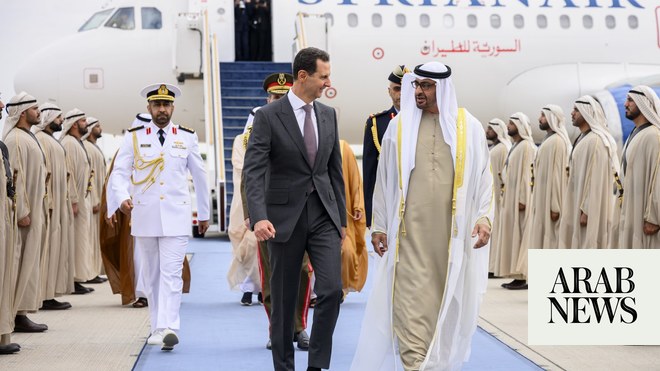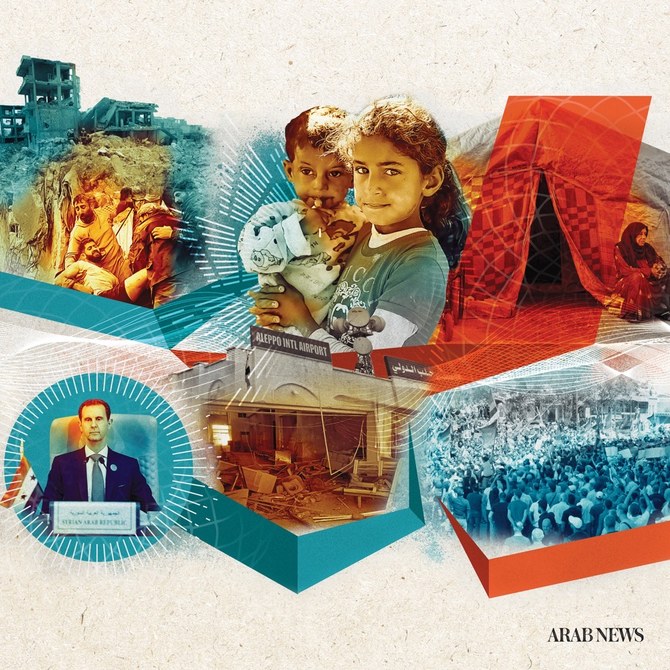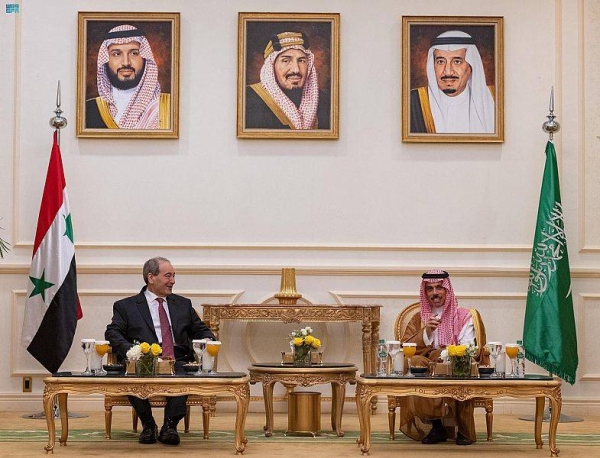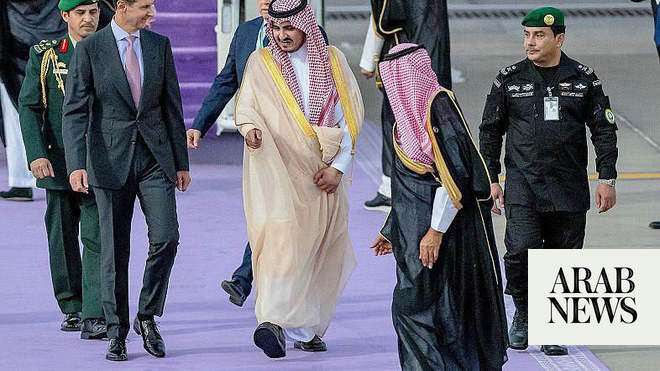
The Iraqi people’s long-hoped-for stable and inclusive government remains a distant prospect almost two decades after the fall of Saddam Hussein. The end of Baath Party rule has not seen the country flower into a progressive society, rebuilt by the country’s great natural wealth; instead, successive governments have lurched from one crisis to another.
Despite the implosion of the state, an anti-American insurgency and the rise of Daesh, Iraqis have managed to keep the country from splintering along sectarian and ethnic lines. What a unified Iraq does mask, however, is the cost of holding the state together and the fact that certain Iraqi affairs are being decided on in Tehran. Across the region, events of recent years have shown that Iranian interference discourages the establishment of independent sovereign institutions and distances states from their fellow Arab nations. Given the acute challenges that Iraq faces, however, it must learn to stand on its own feet.
Arab countries, especially its Gulf neighbors, have a complex relationship with Iraq. During the Iran-Iraq War of 1980-88, Iraq accepted Gulf financial support in exchange for the military containment of Ayatollah Khomeini’s revolutionary ambitions. In 1990, relations entered a new chapter after Iraq invaded Kuwait. Arab allies were overwhelmingly critical of Saddam’s invasion and occupation of an Arab country and several took up arms against him.
However, it was not until 2003 that Iraq took an altogether different trajectory. After the collapse of Saddam’s regime, the Sunni Arab minority no longer dominated the majority Shiites and Kurds in the struggle for control of Iraq. Resentment on the part of the Shiites and Kurds related to decades of perceived disenfranchisement led to a complete restructuring of the Iraqi elite and, with it, the country’s foreign policy objectives.
Though Iraq has always been host to a patchwork of ethnic and religious identities, since the country’s independence from Ottoman rule in 1920 until the US invasion the various communities had broadly lived side by side. However, the disorder that gripped Iraq directly after Saddam’s fall reflected an ignorance of realities on the ground by Washington’s war strategists, as well as the fragility of the state institutions, which had been hollowed out under Saddam. Threatened with the collapse of the Iraqi state, US and Iraqi postwar planners scrambled to put in place a multi-confessional federal system. However, this has actually further entrenched communal divisions. In empowering long downtrodden oppositionists, many of whom had sought exile in Iran, the post-invasion reality was an Iraq being drawn ever closer to Tehran’s orbit.
There is no doubt that Iraq has always stood in the middle of the regional rivalry between Iran and Gulf states — a position that has had a marked effect on its stability and developmental efforts. The infamously unrepresentative post-invasion governments have been instrumental in stoking religious tensions while engaging in haphazard economic management, making Iraq fertile ground for the recruitment of terrorists. Post-Daesh, Iraqi leaders have no choice but to re-accommodate Sunni Arabs, regulate the political role of Shiites and manage renewed calls for Kurdish independence.
Though Daesh’s success was in part a reaction to the rampant corruption of Iraq’s new elites, it also highlighted the perils of involving foreign powers in Iraq’s affairs. The presence of the Iranian Quds Force, which has bolstered the Shiite militias, has similarly shown itself to be harmful. For Iraqi society to move forward, the government must seek to curtail the militias’ activities.
Since the British left Iraq in 1932, nearly all its leaders, including Saddam, have only paid lip service to inclusiveness in the Iraqi state; instead favoring their own tribes to create relatively small circles of power. For Iraq to prosper, its state institutions must be rebuilt blind to religious confessions and with subscription to the state as a priority.
For Iraq to prosper, its state institutions must be rebuilt blind to religious confessions and with subscription to the state as a priority.
Zaid M. Belbagi
A similar historic reality of Iraq has always been its centrality to the Arab world. It is no coincidence that, following the state’s implosion, the entire region grew more insecure. Should Iraq’s Arab neighbors wish to counter Iran, they must take an active role in Iraq’s development and make their collaboration with the Baghdad government conditional on the noninterference of Iranian militias. Iraq’s role in OPEC is also hugely important, as are its links of kinship with the Arab world and its potential to engage in the economic development of the region. Iraq can no longer afford to look east — it must instead look to return home.
Zaid M. Belbagi is a political commentator, and an adviser to private clients between London and the Gulf Cooperation Council (GCC). Twitter: @Moulay_Zaid
Disclaimer: Views expressed by writers in this section are their own and do not necessarily reflect Arab News" point-of-view












